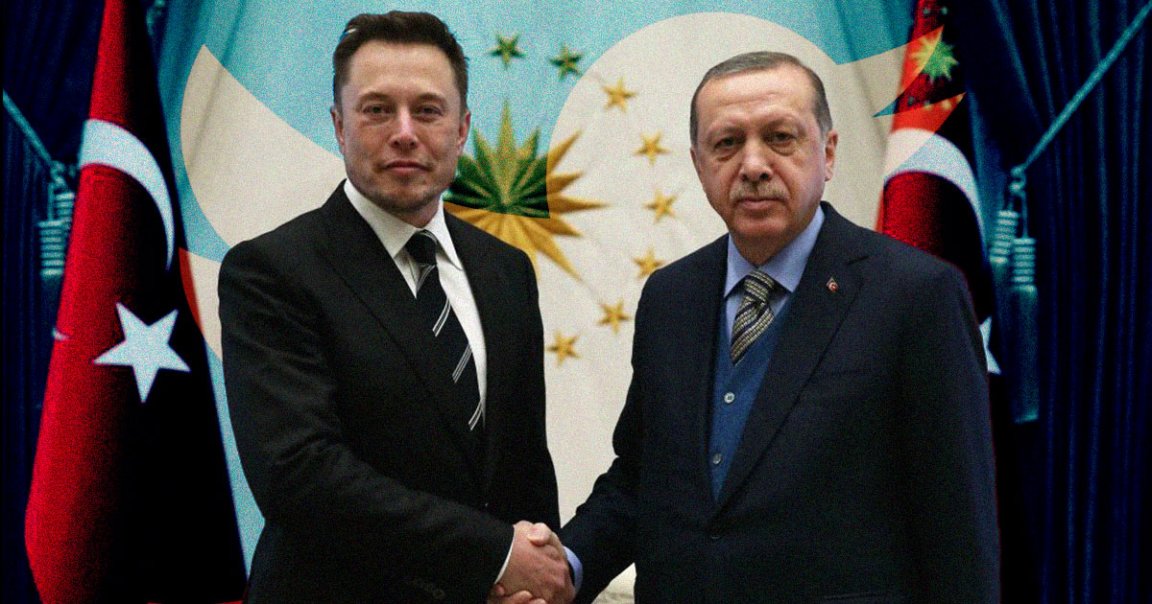
When the Turkish government asked Twitter to censor the opposition during the country’s election this week, the site’s owner Elon Musk obediently complied.
Twitter announced it had “taken action to restrict access to some content in Turkey” in response to demands starting late last week, without specifying what content would be blocked or why.
Put simply, Musk rolled over and essentially gave in to the demands of a dictator without putting up much of a fight.
As such, the move shines a spotlight on the fact that Musk has described himself as a “free speech absolutist” when it’s convenient for his mangled handling of Twitter — but has made plenty of decisions that suggest he’s anything but.
Riffing on the phenomenon, Twitter users took to calling Musk a “free speech opportunist” following the news.
At the time of writing, Turkish president Recep Tayyip Erdoğan, who has been in office since 2014, is leading the opposition by a slim margin during the country’s elections.
The conservative right-wing leader has a long-established track record of stifling free speech in the country.
Meanwhile, Musk defended the decision. After blogger Matthew Yglesias accused Musk of complying, the billionaire CEO lashed out at him.
“Did your brain fall out of your head, Yglesias?” Musk shot back. “The choice is have Twitter throttled in its entirely or limit access to some tweets. Which one do you want?”
Others didn’t see it that way. Famed journalist Kara Swisher, for instance, had harsh words for Musk.
“There is only one [brain] falling out of one head and that’s Elon’s,” Swisher tweeted in response to the exchange. “Being a persistent quisling to authoritarian governments upon which your other businesses are dependent has a very Vichy France vibe,” referring to the French state that collaborated with the Nazis during WW2.
Swisher also theorized as to why Musk would back down so easily.
“Musk is amazingly bad at media, unless the penny drops and you realize… that this is all about global influence and backscratching for his other businesses,” she wrote, linking to an Electrek article about Tesla expanding into Turkey.
Indeed, Musk’s businesses have strong ties to Turkey and his personal relationship with Erdoğan is well-documented. The two met in 2017 to sign a cooperation between Tesla, SpaceX, and Turkish firms and were seen shaking hands at last year’s World Cup.
Wikipedia founder Jimmy Wales also offered Musk some advice, pointing out that Twitter could’ve reacted in different ways.
“What Wikipedia did: we stood strong for our principles and fought to the Supreme Court of Turkey and won,” Wales tweeted . “This is what it means to treat freedom of expression as a principle rather than a slogan.”
Musk has made plenty of changes to Twitter since taking over, some of which extend to the way the company handles requests from governments.
Reporter Matt Binder pointed out that “Twitter used to routinely challenge Turkey’s takedown requests.”
In fact, Turkey banned Twitter entirely back in 2014 for refusing to back down to Erdoğan’s demands. Turkey’s courts, however, overturned the decision roughly a month later.
In other words, Twitter successfully “fought back against Turkey’s ban and overreaching takedown requests in a court of law and won,” Binder wrote .
Almost a decade later, Musk’s Twitter looks considerably different. Twitter has even allowed Russian officials to broadcast blatant propaganda on the social media network.
And yet again, Musk didn’t see anything wrong with that.
“All news is to some degree propaganda,” he wrote in an April tweet, arguing that Putin is “not exactly my best friend” to justify his position on the matter. “Let people decide for themselves.”
Chinese and Iranian government accounts have also been able to make use of the platform without the guardrails that were previously set in place such as visibility filters to curtail their reach.
Worse yet, disinformation watchdog The Atlantic Council’s Digital Forensic Research Lab found that followers of these state-affiliated accounts spiked after Twitter removed their visibility filters.
In short, there’s plenty of evidence to suggest that self-anointed free speech champion Musk has plenty of self-serving reasons to have Twitter censor Erdogan’s opponents during this year’s election.
And that doesn’t exactly bode well with a US presidential election right around the corner.
More on Musk: The Guy Really Running Tesla Isn’t Elon Musk, Report Claims